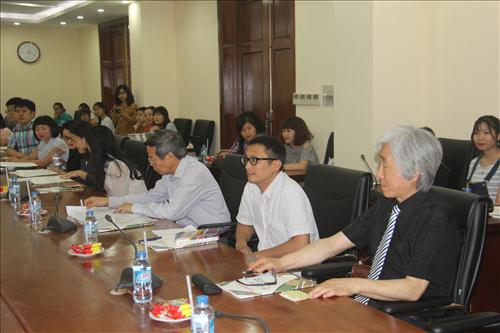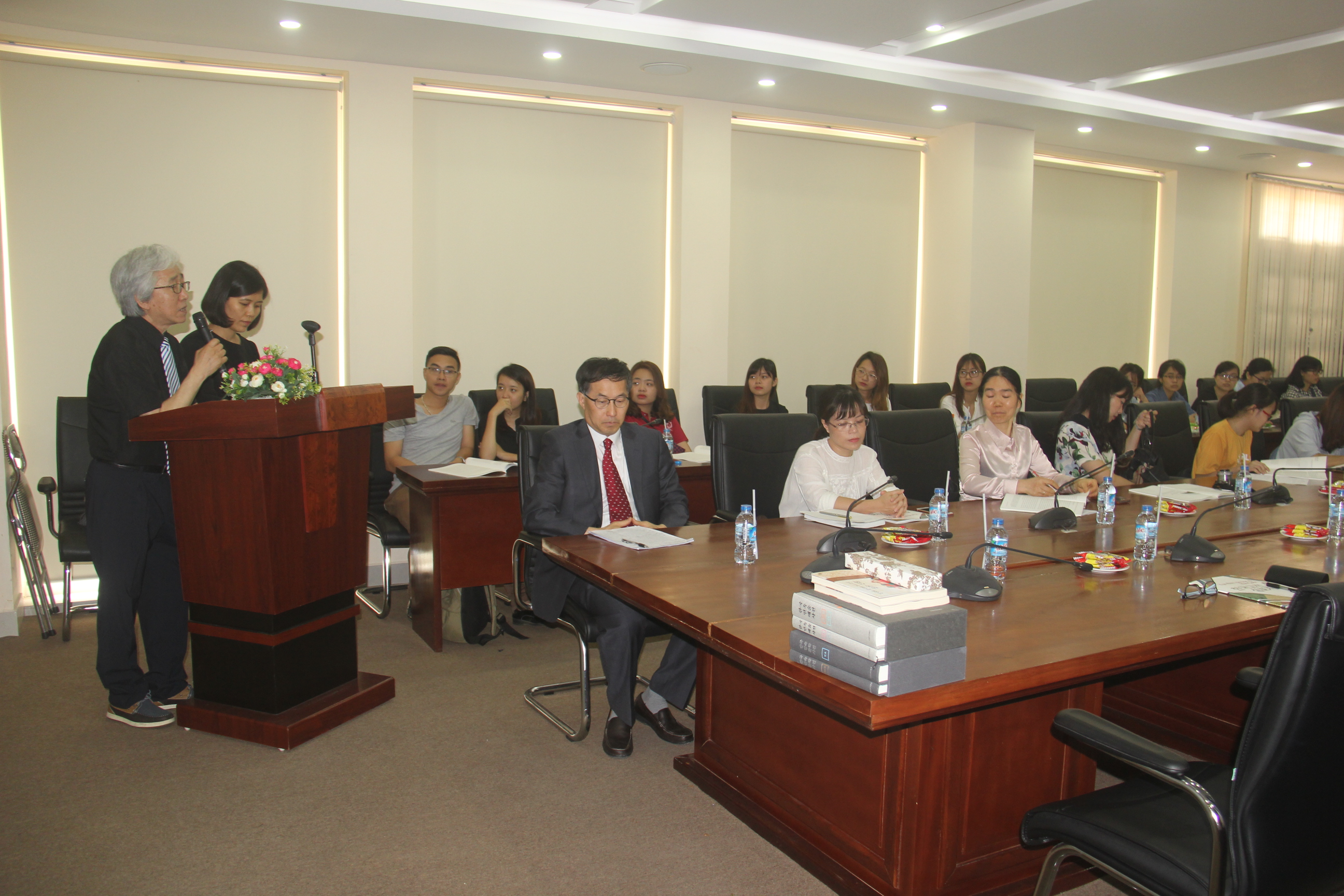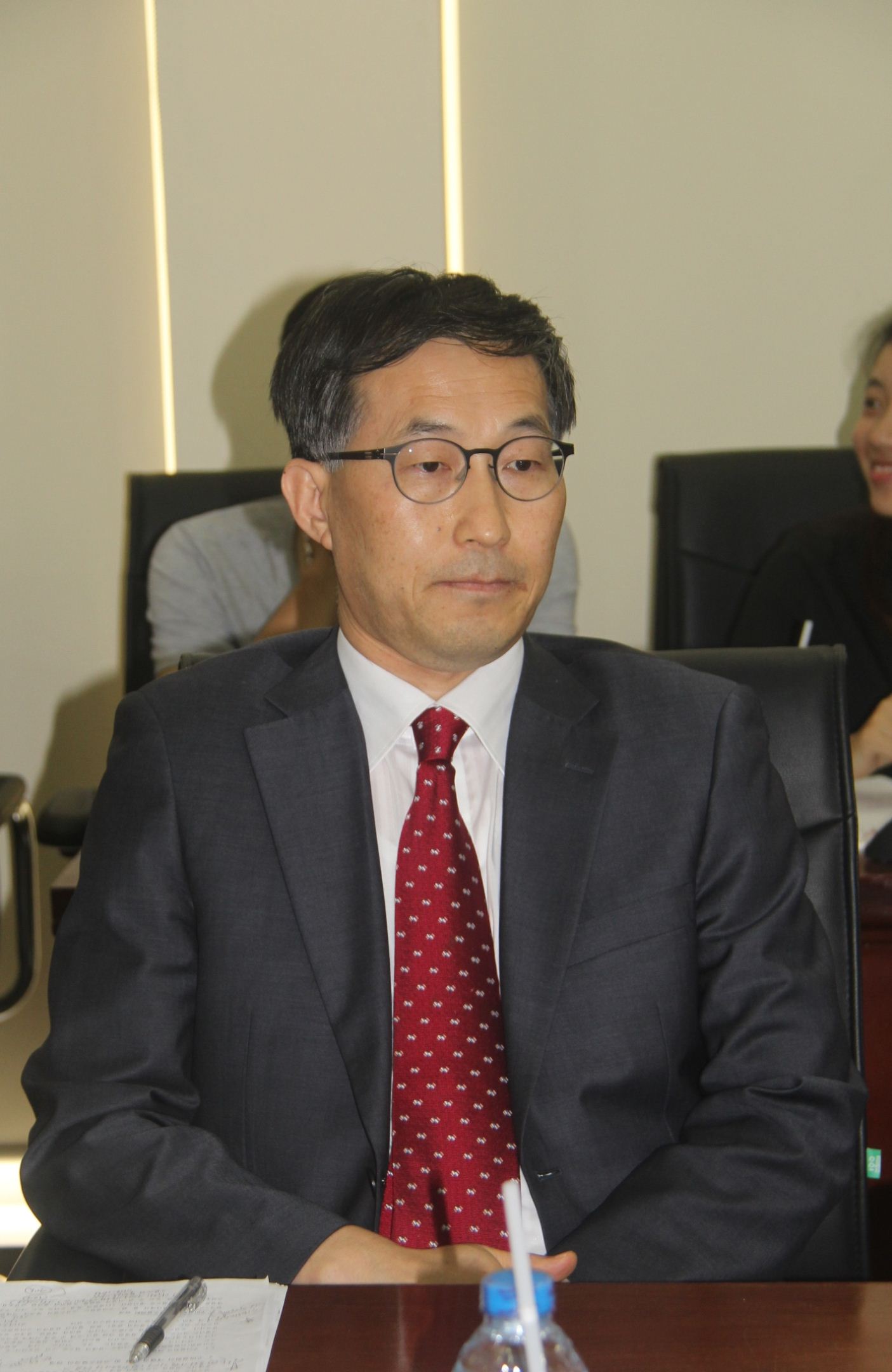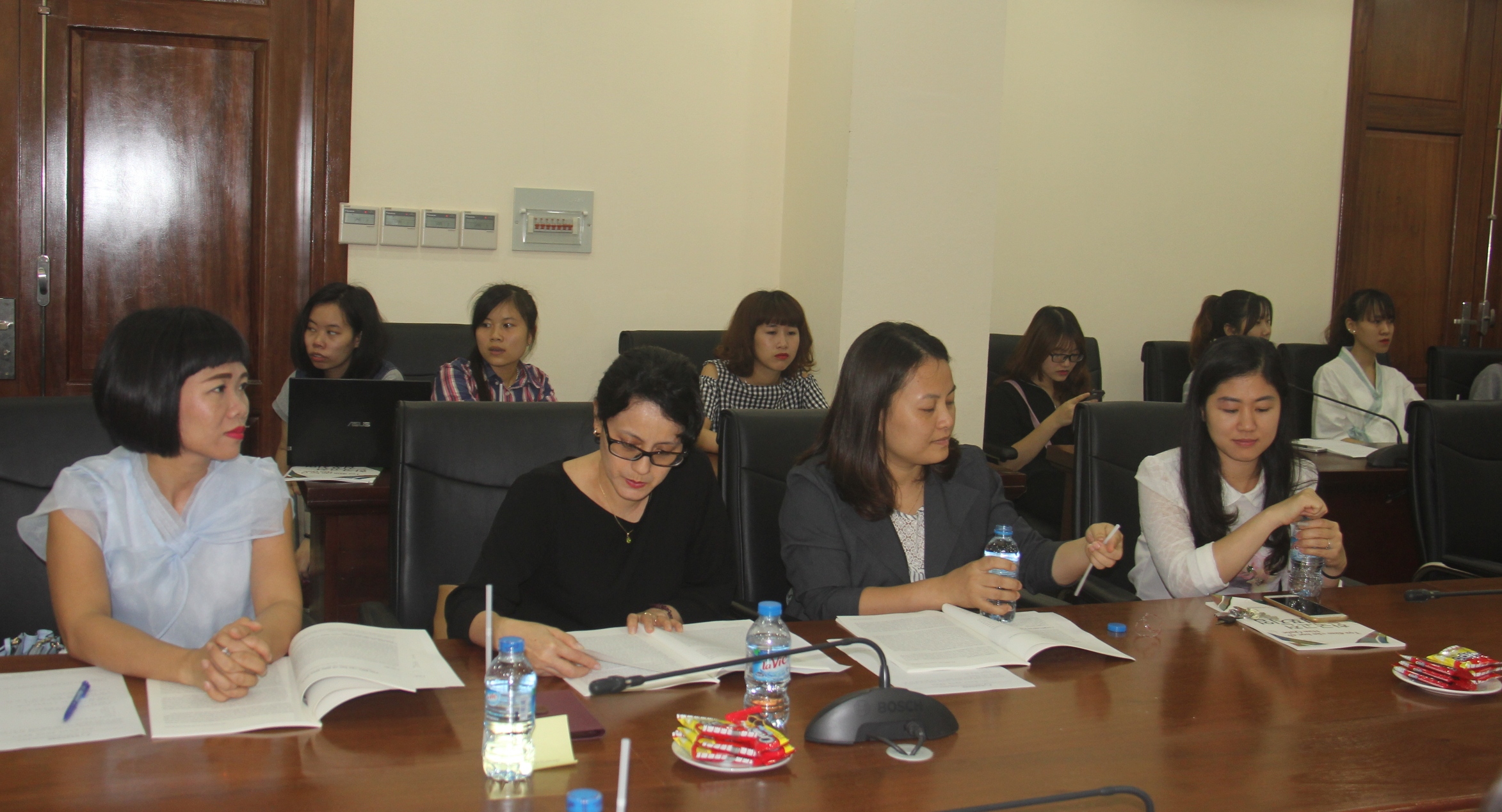
The presentation, attended by Vietnamese and Korean scientists, aimed to introduce and provide information on classical Korean literature from various perspectives: genre theory, comparative analysis of classical Korean and Vietnamese literature, the current state of translation of classical Korean literature in Vietnam, etc.
The first speaker was Professor Choi Wonoh from the Department of Korean Language Education, Gwangju Normal University, South Korea. He presented the concept and classification of seolhwa (a genre of Korean oral literature) and the relationship between seolhwa and classical Korean novels. His talk also explained the concept, scope, and characteristics of the Korean oral mythology genre.

The second speaker was lecturer Tran Thi Bich Phuong from the Department of Korean Language and Culture, University of Foreign Languages, Vietnam National University, Hanoi. Her presentation shared a study comparing the narrative structure of the Korean folk tale "The Tale of Chun Hyang" and the Vietnamese "The Tale of Kieu," identifying similarities and differences in their narrative structures. The author argued that the two tales are similar in that they are both formed from a series of closely related stories. These stories are both complete narratives developed around the main character and play an indispensable role in the main story. A happy ending is a common feature of both tales. However, while "The Tale of Xuan Huong" contains the popular philosophy that "the virtuous will be blessed," "The Tale of Kieu," built upon the popular philosophy of "doing good brings good fortune," also contains the author's experiential philosophy about karma and the relationship between mind and talent according to Buddhist perspective.

Professor Choi Wonoh is from the Department of Korean Language Education, Gwangju Normal University, South Korea.
Representing those involved in publishing management, Ms. Nguyen Anh Ngan (Women's Publishing House) shared insights into the current state of translation of classical Korean literature in Vietnam. According to her, from 2000 to the present, approximately 100 translated books of Korean literature have been published, with classical literature accounting for about 10%, focusing on genres such as folklore, literary history, and literary theory. This number is still too small to attract the attention of Vietnamese readers to classical Korean literature, and only serves the needs of a narrow segment of readers, such as researchers or a small number of interested individuals.

Ms. Anh Ngan also pointed out specific reasons leading to this situation, such as: a lack of knowledge of classical Korean language and culture among translators, the limited readership of classical Korean literature, and the lack of large-scale translation projects with significant investment. Finally, the author recommended closer cooperation between publishers and Korean studies departments at Vietnamese universities and research institutes in selecting and translating classical Korean literature; and increased attention to promoting communication about classical Korean literature through more diverse forms.
Author:Thanh Ha
Newer news
Older news